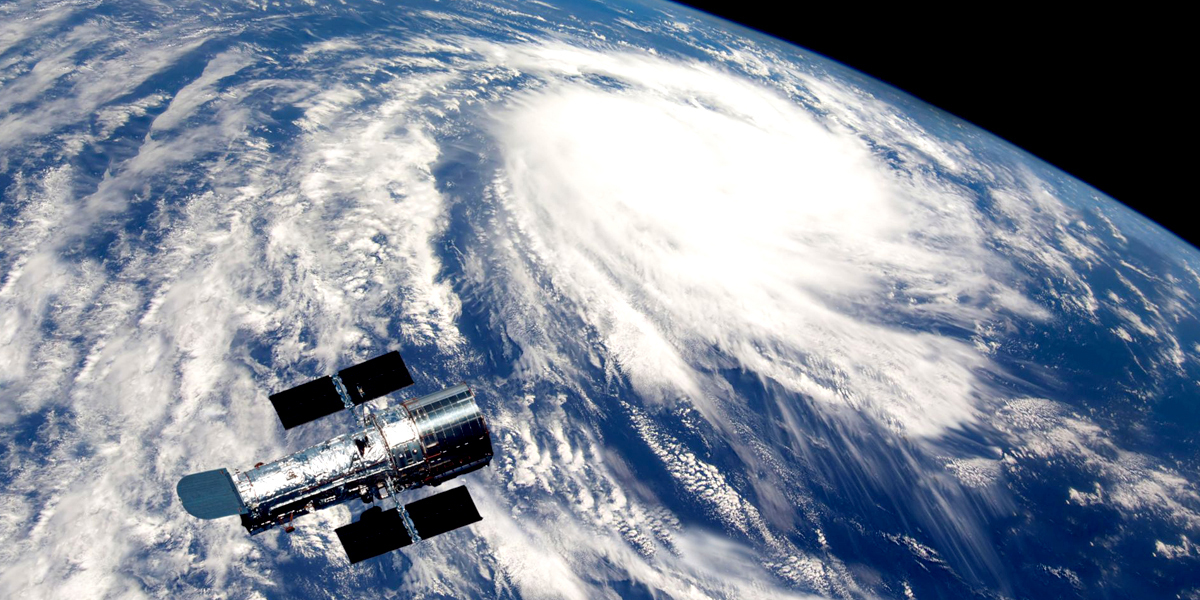

By Nika Knight
President-elect Donald Trump plans to entirely eliminate all climate research at NASA, a move that climate scientists warn will send us back to the “dark ages.” Trump instead plans to devote more funds toward exploring deep space.

The proposal to totally eliminate climate research falls in line with previous GOP efforts to gut NASA’s Earth sciences program, and takes those attempts even further. In 2015 and earlier this year, Republican members of Congress also sought deep cuts to climate research while favoring space exploration in its stead, as Common Dreams reported.
It also lends credence to the charge that Trump’s apparent reversal of his anti-climate statements in a recent New York Times interview was nothing but “a bunch of empty rhetoric.”
The Guardian reports on this latest move:
Bob Walker, a senior Trump campaign adviser, said there was no need for NASA to do what he has previously described as “politically correct environmental monitoring.”
“We see NASA in an exploration role, in deep space research,” Walker told the Guardian. “Earth-centric science is better placed at other agencies where it is their prime mission.”
“My guess is that it would be difficult to stop all ongoing NASA programs but future programs should definitely be placed with other agencies. I believe that climate research is necessary but it has been heavily politicized, which has undermined a lot of the work that researchers have been doing. Mr. Trump’s decisions will be based upon solid science, not politicized science.”
Scrapping NASA’s Earth sciences program “could put us back into the ‘dark ages’ of almost the pre-satellite era. It would be extremely short sighted,” Kevin Trenberth, senior scientist at the National Center for Atmospheric Research, told the Guardian.
Michael Mann, a climate scientist at Penn State University, also commented to the newspaper: “Without the support of NASA, not only the U.S. but the entire world would be taking a hard hit when it comes to understanding the behavior of our climate and the threats posed by human-caused climate change.”
The gutting of the climate program, which expanded under President Barack Obama, appears unfortunately likely to pass, observes Scientific American:
Now set to hold majorities in both the House and Senate, Republicans appear likely to support forthcoming Trump administration proposals to pare back NASA’s Earth science budget, which grew by some 50 percent under the Obama administration. That boost, which gave Earth science the lion’s share of NASA’s science funding, has sustained a growing fleet of satellites that collect data demonstrating climate change’s reality: rising surface temperatures and greenhouse gas emissions, retreating glaciers and ice sheets, and shifting patterns of rainfall and vegetation growth, to name a few.
“Earth science’s preferred growth under Obama—the fact that it has grown over all of NASA’s other science—has created a big political target on its back and validated, in a sense, Republican interpretations of its partisan nature,” says Casey Dreier, director of space policy for The Planetary Society. “And this is taking place in a new political dynamic of strong, near-universal condemnation and skepticism of climate change by the Republican Party, without a Democratic president and key members of Congress that used to push back. That’s a bad double whammy for Earth science.”
And it’s not only American scientists who are deeply concerned by Trump’s proposed cuts.
“While deep space exploration enables us to have big dreams, understanding planet earth enables us to live better lives and actually save lives,” Malte Meinshausen, director of the Climate & Energy College at Melbourne University, told the Sydney Morning Herald.
The NASA Aqua satellite “now delivers unprecedented detail about the water cycle, and the patterns of carbon-dioxide concentrations. Those satellites are what the X-ray instrument is in any hospital—vital to our understanding where the patient planet Earth is sick and what the root causes are,” Meinshausan noted.
Bob Ward, policy and communications director at the Grantham Research Institute on Climate Change and the Environment at the London School of Economics and Political Science, also told the Sydney Morning Herald that slashing the NASA program “would be a shockingly stupid move that would deal a very severe blow to global research on environmental change across the world.”
“Stopping all funding would, for instance, mean abandoning satellites that monitor the Earth’s surface,” Ward said, “and would be an enormous waste of billions of dollars of scientific research.”
But Gavin Schmidt, a climate scientist and the head of NASA’s Goddard Institute for Space Studies, believes that Trump won’t be able to fulfill his promise to make such drastic cuts. The federal bureaucracy’s size and complexity makes it impossible to change course so swiftly and radically, Schmidt argues.
“When I first started working for the federal government I got frustrated,” Schmidt toldBusiness Insider, “like why are we stuck in this pattern? Why are decisions that are made so difficult to reverse? Why is it so hard to shift anything? And it’s hard because there’s a lot of people and there’s a lot of moving parts and there’s a huge amount of money. But now I’m thinking, ‘Oh, you know what, it’s a good thing that that things can’t be changed on a dime.'”
“Chopping off science just to prevent people from talking about climate change won’t work,” Schmidt also noted. “You need science for hazards, for weather forecasting, and climate comes along for the ride.”
“During the [George W.] Bush administration we had climate skeptics rewriting reports and trying to control what’s said to the media,” the climate scientist added. “But the planet kept warming. We kept reporting on it. We kept improving the science that underlies our understanding of why it’s changing. And we will work to continue to do so.”
Reposted with permission from our media associate Common Dreams.

 233k
233k  41k
41k  Subscribe
Subscribe 
